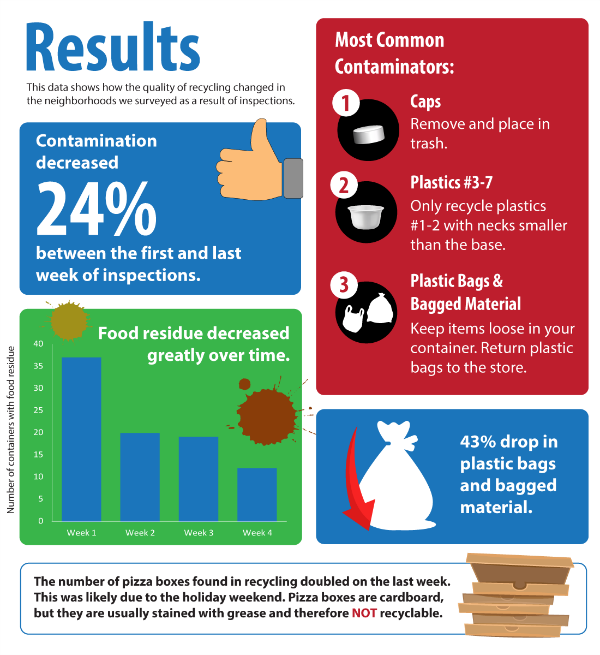Aug 07, 2019
When it comes to recycling, many people want to do the right thing, but don’t always know what should be included in their curbside recycling bin. That’s why ACUA recently teamed up with Egg Harbor Township for a curbside inspection and tagging project to spread recycling information and combat contamination in the recycling stream.
What is Contamination?
Contamination includes a variety of items that can be harmful to workers, damage sorting machinery or taint bales of material ready to be sent out to manufacturers. This includes: plastic bags, which get caught in machinery and bring the recycling facility to a halt; aerosol cans that can explode and become hazardous to workers; and food or liquids left in packaging that can contaminate perfectly good paper and cardboard (click here for our full guidelines).
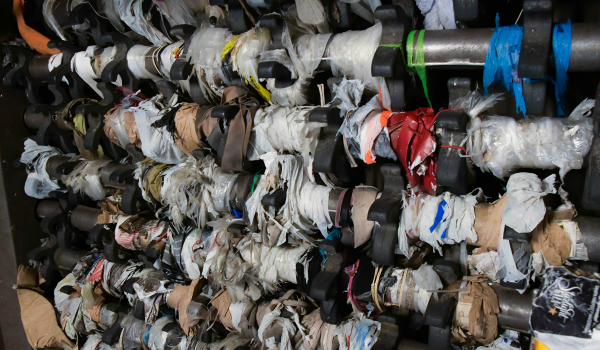
Plastic bags get tangled in machinery and need to be cut out by workers. Many grocery stores accept plastic bags for recycling.
Due to global changes in the recycling markets, recycling programs across the country have been challenged to improve the quality of recycling to meet more stringent requirements. So throwing incorrect items in your recycling bin will cause more harm than good.
The best way to strengthen Atlantic County’s recycling program is to only recycle correct items.
Combating Contamination
ACUA is embarking on a tagging initiative to improve the quality of recycling and help educate residents. We first partnered with Egg Harbor Township to kick off the program.
ACUA employees, along with trained volunteers from the Rutgers Environmental Stewards Program and Egg Harbor Township Public Works staff visited three neighborhoods on four recycling days to visually inspect recycling containers at the curb on collection day. Volunteers left a “Great Job!” tag if the container looked clear of contaminants or an “Oops!” tag if there were items that should be kept out of the recycling stream. To keep the data accurate, residents were not warned about the project in advance.
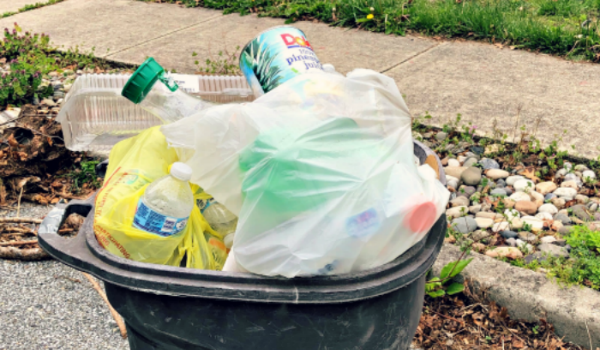
Above is an example of a recycling bin that would receive an "Oops Tag." We can see plastic bags, caps on bottles and a plastic clamshell container which are not accepted in our recycling guidelines.
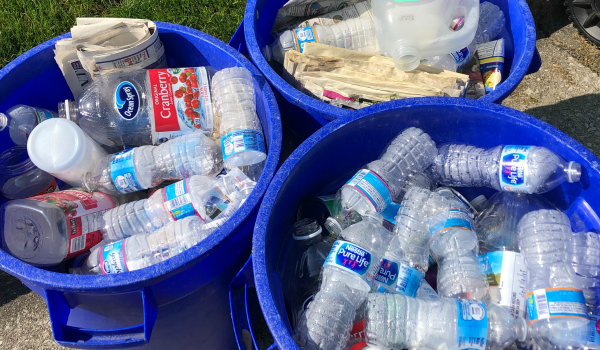
The photo above shows a recycling container free of contaminants.
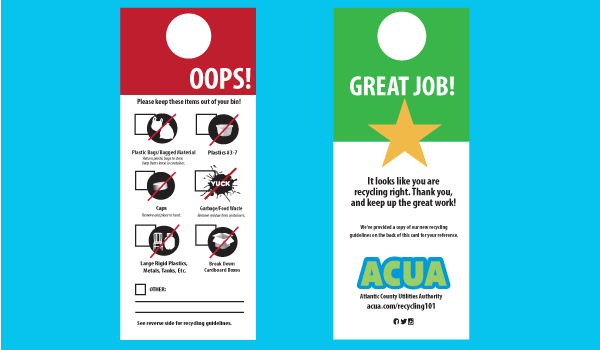
Recycling bins were tagged with either an "Oops!" or a "Great Job!" sticker.
Tagging Results
The goals of this program were to identify common recycling mistakes and contaminants, to measure the effectiveness of informational “tags” on recycling behavior changes and to provide information and feedback to residents – all of which were achieved!
The most common mistakes we found in curbside containers were items in plastic bags, unaccepted plastics #3-7, pizza boxes, plastic caps, trash items like napkins and paper towels as well as containers that still contained liquid or food residue.
After four weeks of recycling inspections, the data showed significant and positive results in the neighborhoods we inspected. Overall contamination rates dropped 24% in the neighborhoods surveyed, and the presence of plastic bags reduced by 43%.
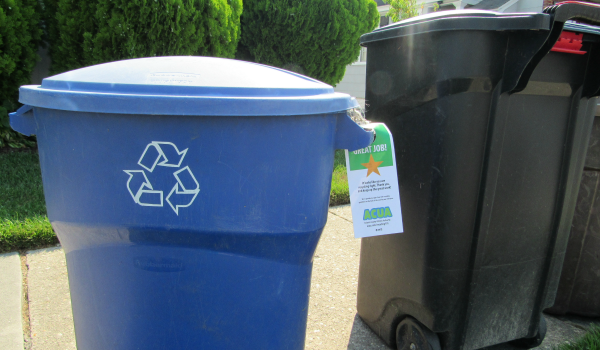
This pilot project was a learning experience for ACUA and will help us refine our future education and outreach to residents. We have already begun replicating this successful project in Margate are hoping to spread it elsewhere. Please contact us if you are interested!
